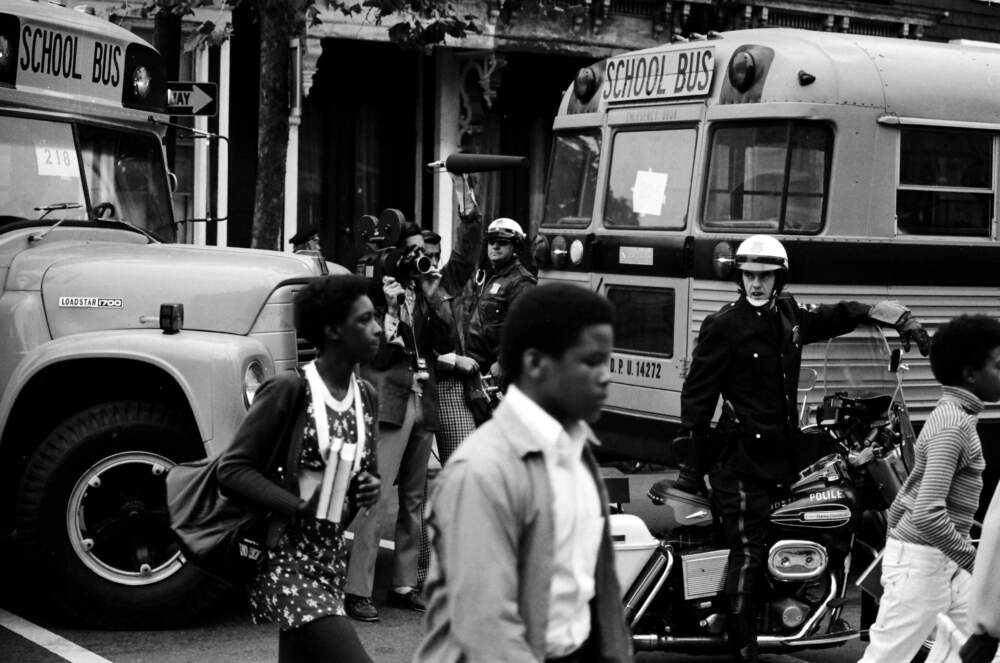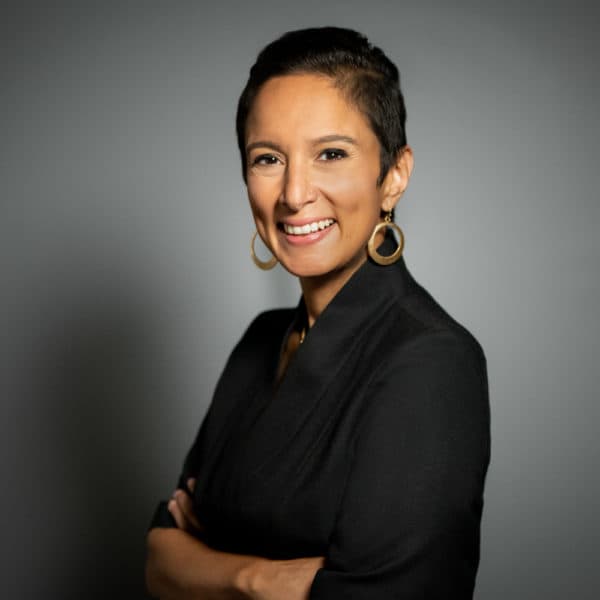Advertisement
Nearly 50 years after the Boston busing crisis, a new initiative examines its history and legacy

Next summer marks 50 years since a federal judge ordered Boston to integrate its public schools. That decision led to thousands of Black and white students being bused to schools out of their neighborhoods, and white Bostonians reacted with riots and violent protests.
In the lead up to the anniversary of those events, dozens of community leaders are launching a new three-year initiative to remember the busing program and reflect on its legacy through conversations and exhibits.
Among those leaders is Michael Curry, who was bused from his home in Roxbury to a Charlestown school as a child. He is now a member of the national NAACP Board of Directors and part of the Boston Desegregation and Busing Initiative.
Speaking on WBUR's Morning Edition Thursday, Curry said the initiative is focused on how to look back on the past accurately, and how to learn from it moving forward, because "it takes time for truth to catch up to history."
"And we know Boston's history during that time — '60s to '70s — Boston's racism was so pervasive. We were steering people away from neighborhoods. The NAACP brought the case to challenge education systems that were basically discriminating against Black children."
Working on the program has given Curry time to reflect on his own personal history. Starting at age 7, Curry said, a bus would pick him up from Lenox Street Housing Project to take him to school in Charlestown. He recalled the ride to school, and having to duck down for safety.
"I remember sitting on that bus and having people pelt the bus with rocks," he said. "I don't remember the words because I didn't really understand the N-word when I was 7 years old, but I remember it was hate. Sometimes you don't remember the word — you remember the sentiment behind it."
While students don't face that level of daily vitriol today, Curry said we still need to have conversations about quality, equity and justice in student education.
Later on Thursday, community leaders and activists gathered at the State House Thursday to launch the three-year initiative. Among them was former first grade teacher, who talked about being one of the only Black teachers at a school for Black children before desegregation efforts.
Advertisement
"The teachers who were there were not really the best type of teachers that cared a lot about these kids," Peters said. "They were all white. And they weren't at all very much connected to them."
Speaking about her time teaching before busing, Peters recalled finding a five-year-old locked in a classroom closet with tape covering her mouth. The child was being punished for talking, she said, and her teacher forgot about her and left.
The lesson to be gained from stories about integration, Peters said, are not about the difficulty of busing but about the idea that education should be available for all.
“Our children have the right, have the absolute right to have what they all called a decent education,” Peters said. “That's what we want for our kids: a decent education. And they were not getting it in the Boston Public Schools.”
The committee is partnering with Boston Public Schools and Facing History and Ourselves to create a curriculum for teaching about these events, said Co-Chair Lew Finfer.
The initiative is set to launch at Roxbury Community College on Sept. 26 and continues into 2024. The events will also include exhibits of photos and documents, and aim to "educate the city on one of the most impactful periods of Boston’s history, in addition to giving opportunities to voice what is needed now to improve Boston and its schools," according to a statement.
This article was originally published on September 07, 2023.
This segment aired on September 7, 2023.


